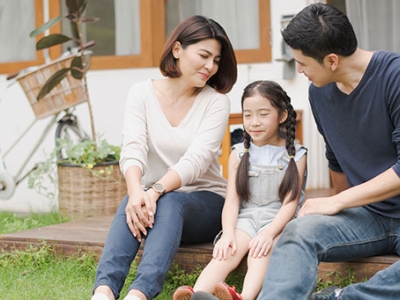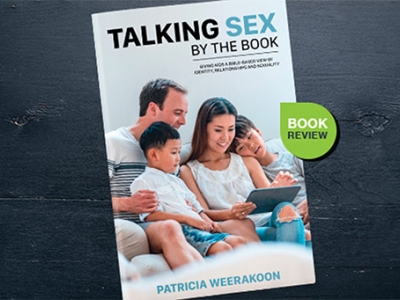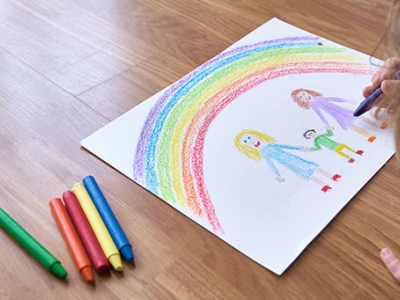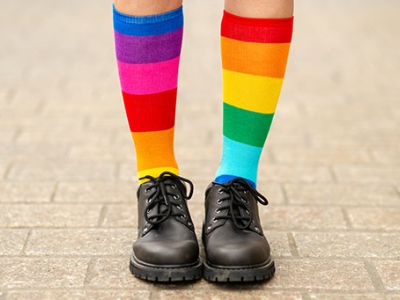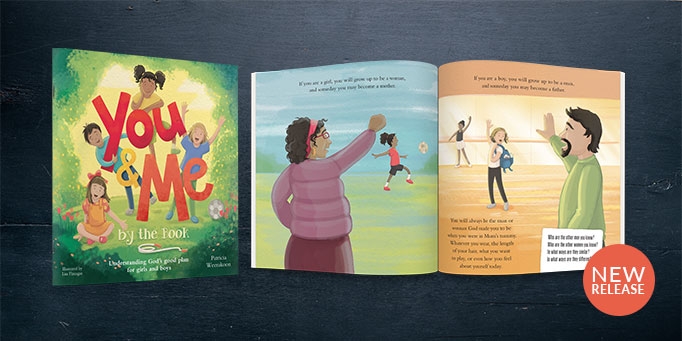
Patricia Weerakoon’s new book for preschoolers
Introducing ‘You and Me by the Book’.
Why did you see the need for this book?
In my research on sex and gender, I am increasingly coming across the indoctrination of very young children in gender fluidity. This is seen in cartoons, books, drag queen story time for preschoolers and some teaching material used in primary and even preschools.
Children are vulnerable to suggestion. At the ages of 3–6 they are working out what it means to be a boy or what it means to be a girl. They are just beginning to understand the differences between boy and girl, man and woman, and discovering which of the two they are, according to their body biology. They have not yet realised that neither they nor others can change their sex. They generally accept that people are ‘boy’ or ‘girl’ as related to external appearances. For example, a doll in a dress with a handbag is a ‘girl’.
Parents and carers have a duty to teach children at this age the truth about their body: the fact that they are created as either a boy or girl, and that their body is good, just as God meant it to be. They need to do this before someone else—friends, books and social media—tries to teach them that their parents and the doctor ‘assigned’ their sex as boy or girl and they can decide otherwise.
Parents and carers also need to discuss with children that they can play in any way they want, even dress as they wish. Just because a boy likes to play dress up as a girl or play with ‘girls' toys’ does not make him a girl. And just because a girl likes to play dress up as a boy or play with ‘boys' toys’ does not make her a boy.
This is what this book is for.
How is the book designed to be used?
This book is produced in a way that provides parents and carers with a choice as to the level of interaction they have with their child(ren). This is the purpose of the ‘Pointers for parents and caregivers’ at the end of the book.
Each child is different. Some may be content to simply have the book read to them. Others may respond to the extra questions in the boxes on the pages. Still others may be curious and ask questions not in the book.
While we can’t cover all the questions children may ask, we have attempted to answer the commoner ones.
Should we raise the topic of sex and gender ourselves or wait until our children are wondering?
It is never too early to start the conversation on sex and gender.
At the preschool age, children are naturally curious. We should use this curiosity to explain the beauty of the body—all parts of the body—and how God has created boys and girls uniquely different for a wonderful purpose.
Some natural opportunities might be: bath time, when someone (even a pet dog or cat!) is pregnant or breastfeeding or when a baby is born.
How do we talk to kids about sex and gender without reinforcing unhelpful stereotypes?
There are several ways we could and should do this:
- Role model: Demonstrate in the family that men can cook and clean and women can fix cars and mow the lawn.
- Show them examples in real life, such as female firefighters and police officers or male nurses and carers. Likewise, show them examples in the Bible of strong women (like Deborah) and gentle men (like David and Jesus).
- Provide a non-judgemental space for boys and girls to play any way they want without forceful introduction of sex-specific toys and games.
- Talk to children about what they are reading, hearing from friends, seeing on TV, social media and learning in preschool.
Where can we get more information and support in navigating this topic with our children?
I recommend my book Talking Sex by the Book which I wrote exactly for that purpose.
In that book I combine secular research with biblical guidelines for talking to your children about sex and gender, giving advice for different age levels from toddlers to teens and beyond. The book covers topics such as body development and image, sex and relationships, pornography and gender. There are also activities to help parents to work through their own hesitations and concerns.
I would recommend you read Part One of Talking Sex by the Book first. It covers parenting principles and styles, as well as some personal and relational issues that could make you uncomfortable when discussing sex with your children.
In each chapter of Part Two, read the introductory section and then concentrate on the age-appropriate applications for your child(ren)’s age group.
How can Christian families show the world a better way of understanding sex and gender?
- Model a biblical sexual ethic in your life: one of faithfulness and other-focussed, sacrificial love in marriage, and celibate purity in singleness. Watch not just your actions but your words.
- Demonstrate femininity and masculinity in a healthy way that goes beyond cultural stereotypes, both in church and in the community.
- Be courageous in speaking into the cultural tropes of sex and gender. Explain the biblical sexual ethic, but speak this truth with love and compassion.
- Show love and compassion to people who do not live according to a biblical sexual ethic (same-sex attracted, sexually active or cohabiting before marriage, trans) while gently explaining the goodness of God’s way. Where possible, support this with science (as we do in all our books!).
- Invite those in the above category into your home and community—let them see that Christians are loving and welcoming, not hateful bigots!
- Share good books (like ours!) with friends, both Christian and non-Christian.
---
Patricia Weerakoon trained in medicine in Sri Lanka and did her post-graduate study in sexual health in Hawaii. She is a sexologist, speaker and writer. Patricia is an evangelical Christian. She has a recognised media presence and is a popular speaker in churches and Christian schools around Australia. Her speaking and writing demonstrates the harmony between contemporary scientific research and biblical patterns and guidance on healthy sex and relationships.
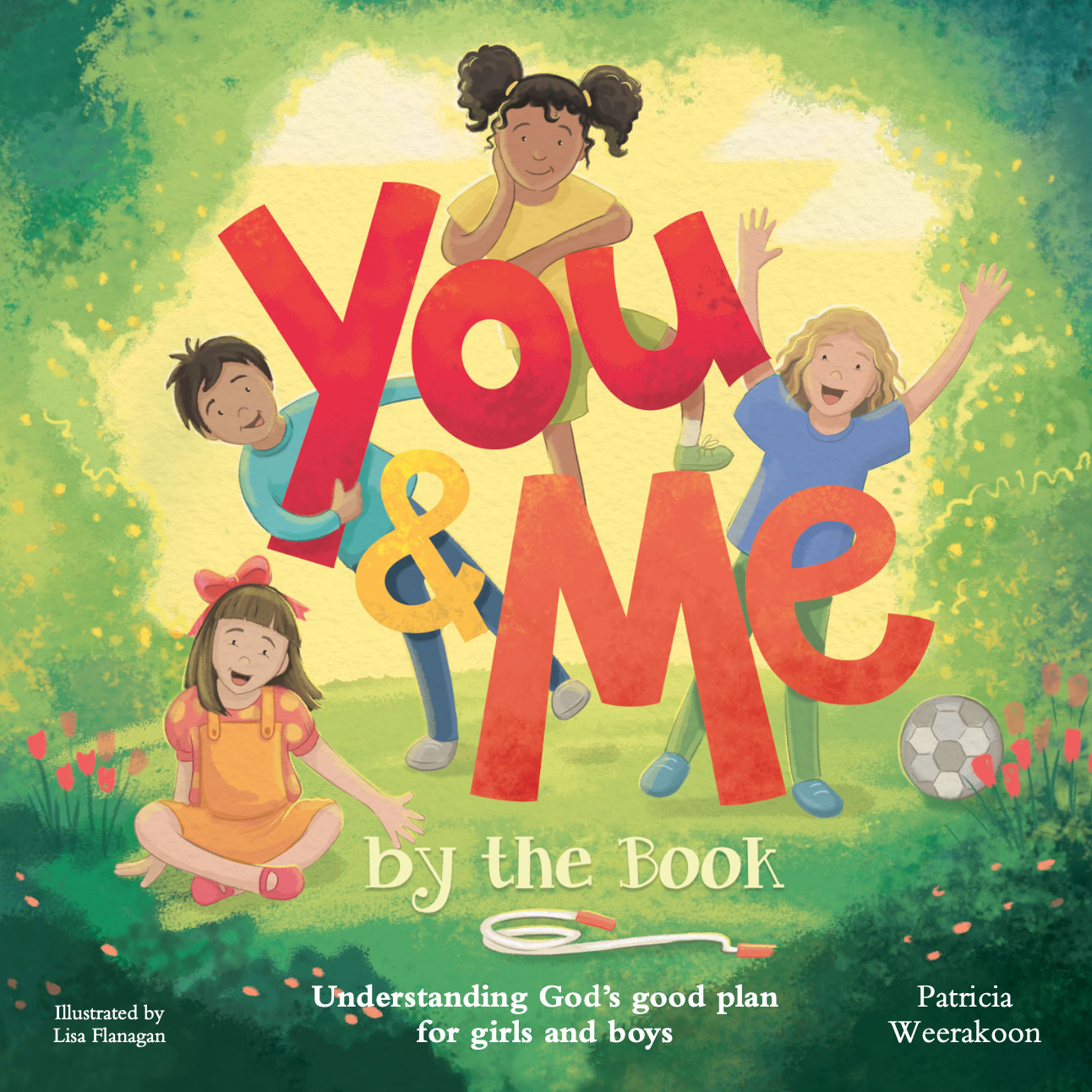
You and Me by the Book
In 'You and Me by the Book', children learn that God had created them right from the beginning to be either a boy or a girl, regardless of how they feel or what they like to do.
For more articles from Growing Faith, subscribe to our monthly e-newsletter.
To hear about the latest books and resources from Youthworks Media, subscribe here.


